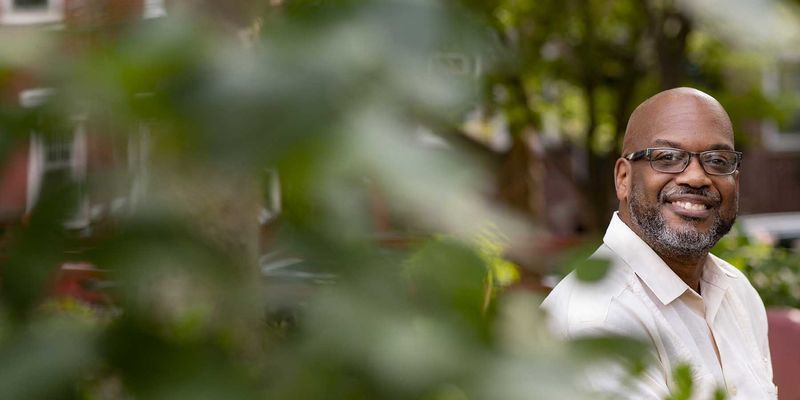Your guide to being a good digital citizen
How you can establish a positive online presence according to experts from Temple.

In today’s day and age (especially in the Zoom era), there is an abundance of ways to stay connected and share information, including the use of social media. We rely on social media platforms to keep in touch with friends and family, read the news, keep up with current trends, share our thoughts and more.
With all of these platforms, it’s crucial to think about your online footprint. How can you maintain a good internet presence? What are some good resources to use when it comes to what you should and shouldn’t post? We’ve spoken to a few experts here at Temple to answer these questions and share what it takes to be a good digital citizen.
First things first: What is a digital citizen?
Digital citizenship refers to the responsible enforcement of smart and safe social media habits. Staying safe on social media is just as important for adults as it is for children. In fact, one in five Americans have been subjected to severe online harassment according to a 2017 Pew Research poll.
“A digital citizen is defined as a person who regularly uses the internet and embraces all that information technology has to offer,” said Karen Demmler, a career coach at Temple University’s Career Center. Demmler works with students to advance their careers and thinks social media is a key component of a job search. She shared that students often go to the Career Center at Temple for help with navigating social media platforms professionally, such as Linkedin.
“A good digital citizen is someone who is mindful of their interactions and all that they post and say online,” Sherri Culver, a media studies and production faculty member and director of the Center for Media and Information Literacy (CMIL), said. Through CMIL, Culver and others work to encourage thoughtful online behavior through various projects, including a television show produced for TUTV called Media Inside Out.
How can you be a good digital citizen?
Think before you post.
With social media, it can be easy to share things behind a screen that you might not feel comfortable saying in real life.
“While using online platforms, a simple question to ask yourself is ‘Would I say this in person?’ whether it be in a meeting, attending a class or chatting with a friend,” Demmler said. “A good digital citizen should consider this perspective in order to build a strong, well-balanced presence.”
Experts also stress that it’s important to avoid posting anything to your personal social media accounts while emotions are high.
“Don’t let your emotions get the best of you,” said Monica Sobolesky, the regional assistant director for the Office of Undergraduate Admissions, who works to help students through the application process.
Avoid oversharing.
While there are a lot of things you may want to post, it’s better to err on the side of caution when it comes to sharing personal information such as your full name, location, financial information and anything else that makes it easy to track you down.
“We live in a digital world where we want to document just about everything we experience, but oversharing specific information about yourself gives the ability for others to steal your identity,” Sobolesky said.
Protect your privacy.
Stay on top of your privacy settings to ensure that you’re comfortable with what others can see on your social media accounts.
Culver suggests spending an hour at least every six months to evaluate the privacy settings on each of your social media accounts.
Use more than one search engine.
Another part of being a responsible digital citizen is being aware of where your information comes from. While your go-to search engine might be Google, you should keep other search engines in mind when obtaining information.
“Consider using anonymous search engines such as Startpage, DuckDuckGo and Swisscows,” Demmler suggested. “By using a variety of search engines, you can limit how much your search history or clicks are shared.”
Protect and change your passwords regularly.
Protecting your passwords and frequently updating them makes it harder for hackers to find your information.
Culver suggests creating a unique login for every website that you use and to avoid using a Facebook or Google account to log in when creating accounts on other websites or applications.
Check where your information comes from.
Fact-checking your information is an integral step before clicking that “share” button. In today’s climate, it’s easy to find and spread misinformation if you don’t check your sources.
Report illegal activity and poor behavior.
Demmler stresses that a key part of being a good digital citizen is to report suspicious activity and cyberbullying in order to prevent more cases from happening in the future. If you see someone involved in cyberbullying, you should report their account immediately. Additionally, if someone is posting anything that might be illegal, you should report that as well.
What are some key resources to use?
There are a variety of resources available to you both at Temple and in general to keep you safe and informed. Check out some of the suggested resources below.
The Center for Media and Information Literacy
The Center for Media and Information Literacy (founded through Klein College at Temple) offers archived episodes of Media Inside Out, free workshops, webinars and other events. Access the Center for Media and Information Literacy.
Workshops on HANDSHAKE
Temple students have access to different workshops through their respective schools or colleges, which you can find on HANDSHAKE. Access HANDSHAKE.
Temple Libraries
Temple’s library offers resources on media and news literacy free to students. Access Temple libraries.
Courses at Temple
Temple offers courses that go more in-depth about digital citizenship, including Sherri Culver’s GenEd class Media in a Hypermediated World which is available to all students. Learn more about the class.
National Association for Media Literacy Education
This is free for everyone—regardless of whether or not you’re a Temple student. Access the National Association for Media Literacy Education.
5 Questions of Media Literacy
The 5 questions of media literacy is a good place to start for students looking to critically think about the media they’re consuming on a regular basis. Discover the 5 questions.

